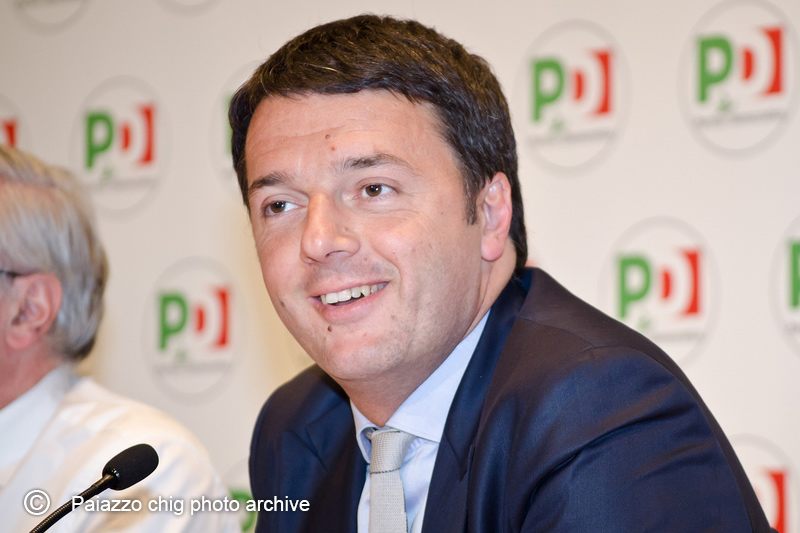By James Mackenzie and Silvia Aloisi CERNOBBIO Italy (Reuters) - The annual meeting of Italy's business elite on the shores of Lake Como was - again - dominated by calls for reforms and gloomy discussion of an economic crisis now well into its sixth year.
With Italy's economy back in recession, business leaders sounded a note of impatience for Prime Minister Matteo Renzi, the energetic 39-year-old who took office in February, to get on with the task.
"In these past few years, I have seen little or no change in this country," Sergio Marchionne, chief executive of auto giant Fiat, Italy's biggest private-sector employer, told the conference in Cernobbio.
In short order, Italy has had four different governments, each of which has promised - and largely failed - to tackle stifling bureaucracy and corruption, cut taxes, reform inefficient labour market rules and keep control of tottering public finances.
Renzi has vowed to attack the structural weaknesses in a "1,000 day" programme that includes a major Jobs Act, a sustained assault on red tape and a radical slimming-down of the bloated political system.
Buoyed by a historic vote of over 40 percent in European elections in May, Renzi enjoys an approval rating far ahead of any of his rivals, running as high as 64 percent in the latest Ipsos poll published in the Corriere della Sera on Sunday.
Increasingly, however, there are calls for the blizzard of announcements to be followed up by concrete signs of progress.
"My judgement about the Renzi government is not negative. I think they are managing a very difficult situation," said Federico Ghizzoni, chief executive of Unicredit, Italy's largest bank by assets. "But looking forward there is a need of further acceleration," he told Reuters in an interview on the sidelines of the Cernobbio conference.
LOBBIES
Gabriele Galateri di Genola, chairman of Generali, Europe's third-biggest insurer, said more flexible labour laws and a serious attack on public spending to allow taxes to be cut were essential.
"I think any government which won 40 percent support got it because people want it to do things that go beyond announcing them enthusiastically. It may be unpopular but that's the price of getting things done," he said.
Renzi has reacted to the calls for action with defiant assurances that his programme is on track and wants the European Union to permit a more flexible interpretation of its budget rules to allow more scope for the government to support the sickly economy.
But there have also been signs that he is losing sympathy with the business elite. In an interview with Il Sole 24 Ore last week, he declared: "The establishment which is turning up its nose is the same one that got the country into this condition."
His decision to skip the Cernobbio meeting and instead visit a hydraulic equipment plant in the northern town of Brescia appeared to be a calculated snub to the legendary "poteri forti", the network of business and social forces said to be the real powers in Italy.
European Central Bank President Mario Draghi has singled out Italy for dragging its feet on long-promised structural reforms, which have so far failed to make any impact on the thick web of lobbies - from unions to professional groups from lawyers to taxi drivers - that have defeated past reform efforts.
Last week's surprise ECB rate cut and pledge to put its resources to use to support lending through a special asset-buying programme has increased the pressure for action.
Several European economists and officials at the conference said the problem in Italy was not drawing up the reforms or even getting them through parliament.
"In Italy, it's a problem of implementation," ECB Executive Board member Peter Praet said.
"The question is as usual the political support. We need to be able to trust the commitment to reforms by governments," Praet added. "The problem is time consistency: you support demand but then reforms do not come."
(Additional reporting by Silvia Aloisi, Valentina Za, Gianluca Semeraro; Editing by Will Waterman)
